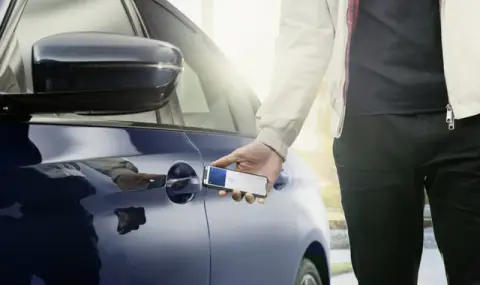It is a well-known fact that a huge number of parameters of modern cars are available for monitoring by the manufacturer (including in real time). Now, experts have again paid attention to this after the official service of one of the Chinese car brands reported a remote “research“ of the vehicle parameters using an internet connection. What owner data can the car manufacturer extract and can leaks be prevented?
For ten years now, owners of premium models (mostly European brands) have been accustomed to remote wireless services that require constant transmission of telemetry data. Now it turns out that the Chinese brands, which are starting to appear more and more often on the roads of Europe, are no less greedy for information.
„At the moment, the dealership and the dealer are conducting an inspection,” said a representative of one of the Chinese brands, commenting on the inspection of a crossover that burned down for technical reasons. The dealer is in constant communication with the car owner. In addition to on-site vehicle diagnostics, the Chinese development team performs remote online analysis to speed up the determination of the vehicle's technical condition.

In other words, some types of diagnostics are carried out in “tele mode”, over the Internet, from the Chinese side - for some reason the manufacturer does not trust these procedures of the dealer in the respective country. Just as, to repeat, European and American companies have been doing for the last decade.
Along with these remote diagnostics, however, manufacturers can also collect personal information about the car and its owner-driver. During diagnostics in a technical center, as a rule, communication with the manufacturer is carried out through the dealer's equipment (and most often the car is connected to the dealer's equipment using a cable).
But at a minimum, the on-board media system has the ability to transmit data to the network, and manufacturers often use it. Some cars have much more outgoing traffic on the built-in SIM card than incoming traffic, it just shows that the car is constantly leaking information. In addition, it is clear that the car can transmit not only technical data such as the speed and location of the car, but also record sound and even video from the interior. Some car-sharing operators quite openly use the technology, as it is not impossible to spy on private cars as well.
But what should ordinary drivers who don't want to share personal data do?
If we are talking about basic car configurations, with a minimum of electronic assistants and a simple media system, then by deactivating the SIM card it is quite possible to stop data transmission and this will not lead to an accident. But the “richer” is the equipment, the more car systems will refuse to work.

The next thing you'll have to deal with in the name of privacy is a modern alarm system with a satellite “beacon“ and mobile data to be turned off. Third, some of the electronic assistants that increase active safety (active cruise control, etc.) must also be disabled. As for the GPS module, it is not particularly difficult to disable it, but at the moment it has not been proven that it transmits data - except for the location of the car.
